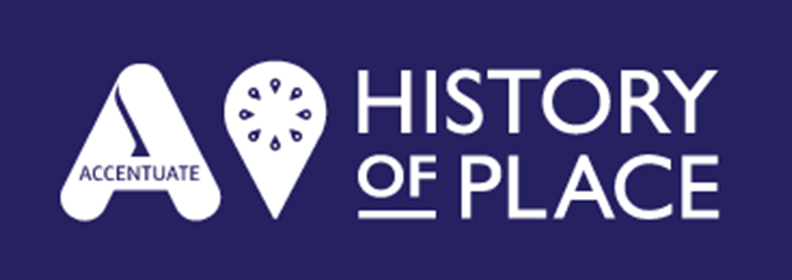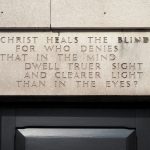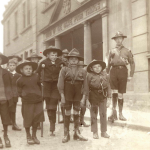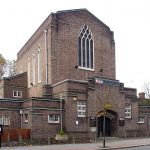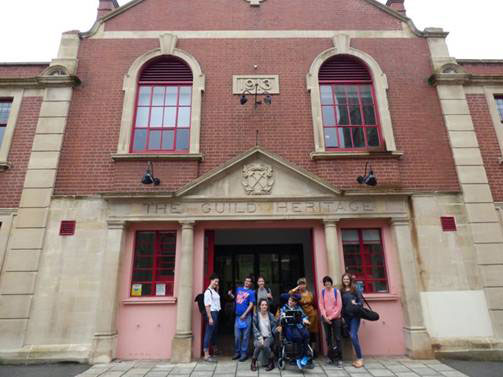This was originally published on Laurine’s blog.
For a few months now I have been involved with History of Place, a national project looking at different disability-related places around the country. In Bristol, we are looking at the Guild of the Brave Poor Things, and this summer a group of young people made a short film about it. It was launched yesterday at the MShed, and as Disability History Month this year is about disability and language, the event featured some thoughts about the topic.
Another volunteer, as well as a young person who participated in the short film had written their own thoughts, and I was tasked with responding to them in some way. Laura Welti, from Bristol Disability & Equality Forum then talked about the topic as well.
I have been asked by an audience member who works at the Glenside Museum, where we did some oral history training a few months ago, to put my talk online, so here it is! I only had about 5 minutes to share my thoughts, so of course this is only a very small part of my reflections on the topic. Many thanks to Grace Swordy for inviting me to share this.
You can say a lot with a name
What’s in a name? I would argue: a lot.
Language is power. It can be used to empower people or disempower them, and in a million other ways.
Think: there have been articles about what a full stop at the end of a text message might mean to people, and we manage to have different opinions about that.
So it’s no surprise there are a lot of different opinions around the language used to talk about disability.
…but it’s not just about the one name
What’s in a name? I would argue: it’s not just about the one name. It’s not just about whether you think we should say ‘a disabled person’ or ‘a person with disabilities’.
It’s about the whole context surrounding how disabled people are talked about. It’s about how people look at us and think of us. And the way we are perceived can often be spotted in the way nondisabled people talk about us.
Think: when someone makes an off-hand comment about how some horrible politician might “be on the spectrum” in order to try and justify why this person is acting in this way, it says a lot about what they think of people like me, who are autistic.
So it’s no surprise I clench my jaw when I hear someone say that.
Context matters when language is used
What’s in a name? I would argue: it depends on who’s talking and when.
Language constantly evolves and changes, and the changing language of disability has nothing to do with political correctness. Language changes whether we want it or not. It just happens. Many words mean different things now.
Think: if ‘wicked’ can mean both ‘morally wrong’ or ‘excellent’ depending on the context, then it makes sense that a word like ‘special’ can be both used as an insult or a compliment.
So it’s no surprise disabled people are reclaiming certain words and using words which have been used to insult us in new ways. For example, I have physically disabled friends who call themselves ‘cripples’ as a way of reclaiming something that was used to look down on them. They’re not the only ones.
It’s also about respect
What’s in a name? I would argue: it’s about respect.
If someone tells you their name is Mark and you keep on calling them Paul, that will be considered quite rude. So try and address people the way they want to be addressed.
Of course it becomes more complicated when you are trying to address a group. Very often, though, there is general consensus on what term a particular group of people with the same disability prefer to be called.
Think: if you acknowledge that most autistic people prefer to be called autistic, as shown in a large survey, then it says a lot when you continue to use “person with autism” as the default.
So it’s no surprise language matters.
And it can also simply be about stating facts
What’s in a name? Sometimes a word is just a descriptor or a fact.
At the time of the Guild, as pointed out by [volunteer on the project], language was different. And at the time of the Guild, as [young person who participated in the film] said, charitable aims meant that patronising language was used. How do you try and raise money for disabled people if you make us sound empowered? I think this is still a problem today, where depressing statistics and images are used by charities in order to get the public’s attention, taking away from our abilities and value.
Today, like yesterday though, disabled people speak up, and we advocate for ourselves. While language might seem like a minor issue compared to the issue of cuts to disability benefits, employment of disabled people, and many other things, language surrounds us and cannot be ignored.
In the US, there was a campaign recently called ‘Say the word’. And the word in question was ‘disability’. Personally, when I call myself disabled, I am not saying that my disability defines me. I am simply stating a fact. When I say I am autistic, I am not saying that’s all there is about me. But the fact is that if I were not autistic, I would not be me.
Think: when people say ‘wheelchair bound’ they are often stating an inaccurate fact. This makes people believe that any wheelchair user who gets out of their wheelchair is surely lying and does not need a wheelchair at all, because collective imagination has us believe that people are ‘bound’ to their wheelchair, disregarding part-time wheelchair users. This could be applied to many other ways of speaking, which influence the way we think.
So it’s no surprise language matters: it says so little and so much all at once, but it will always be around us.
Read more from Laurine on her blog.
If you’d like to say something to me, don’t hesitate to contact me on twitter @laurinegrmo.
